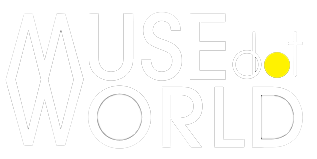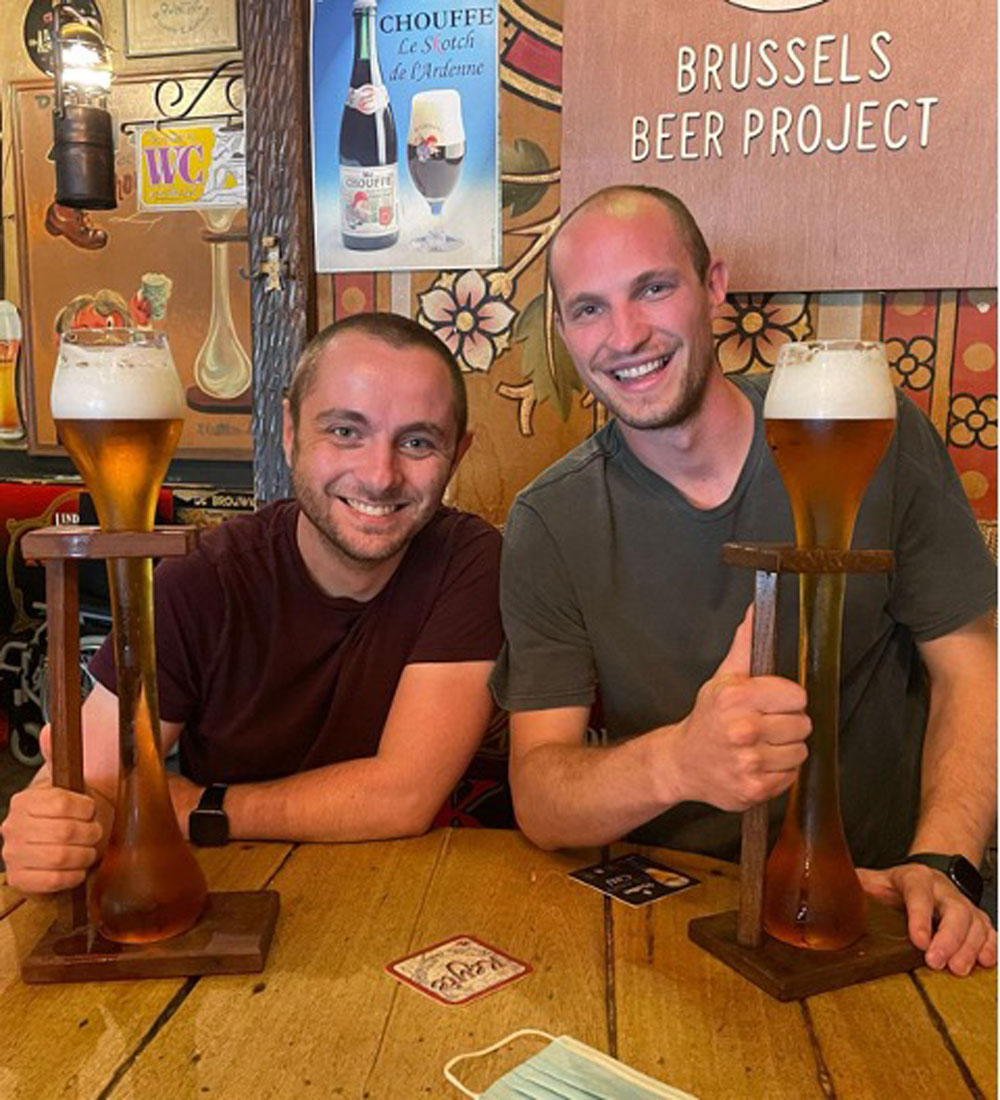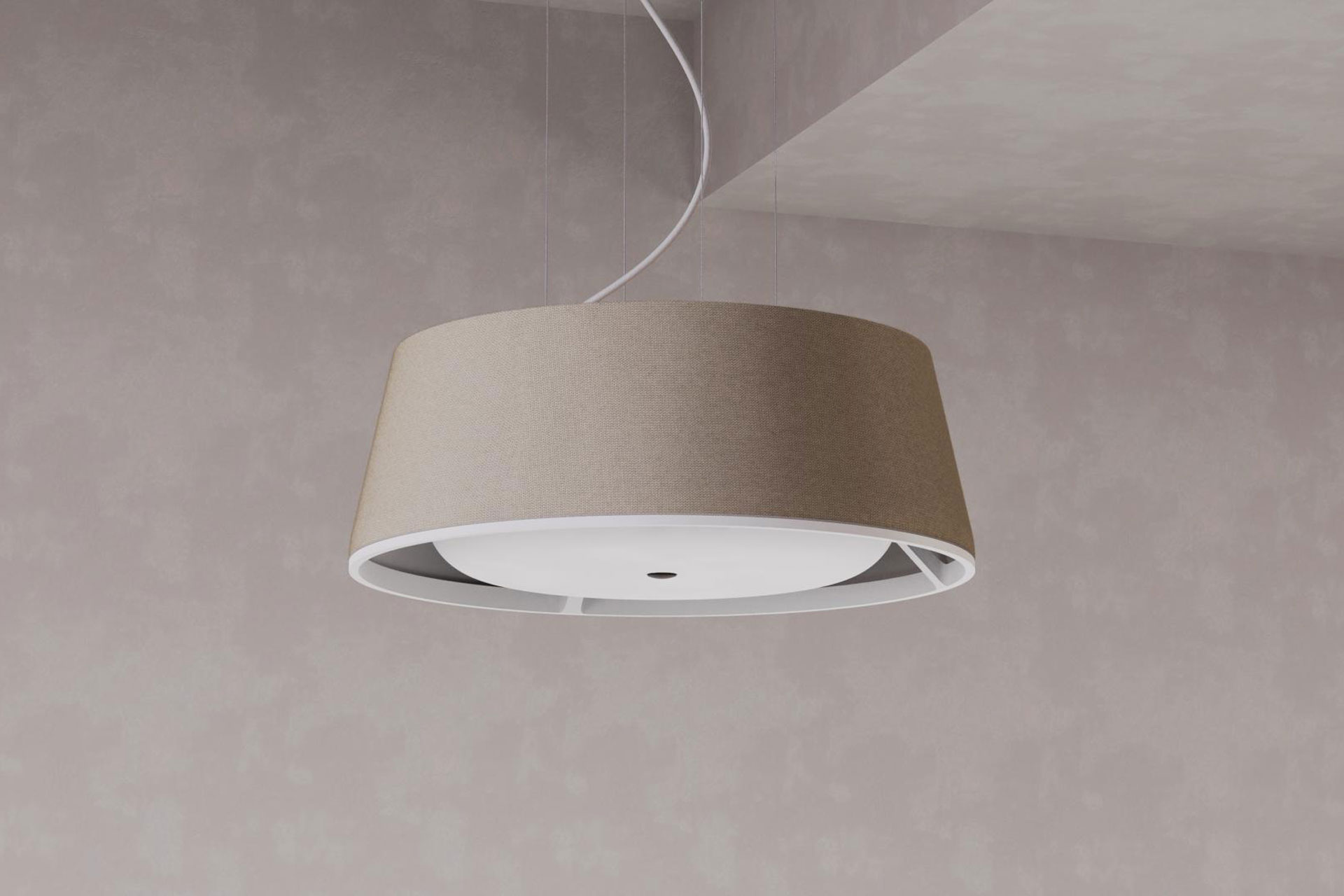Interview with Mati Papalini and Marko Filipic of Watif for Nobi NV

The Artistic Jurors of the 2023 MUSE Design Awards
September 12, 2023
Interview with Li Jiuzhou from China
September 12, 2023Mati Papalini and Marko Filipic
Mati Papalini and Marko Filipic, collectively known as Watif from Belgium, are two seasoned designers boasting over 7 years of expertise in innovation initiatives. Their primary focus lies in Product Design, yet they consistently expand the scope of each project by incorporating elements of Strategic Design, Service Design, and User Experience Design.
Interview With The 2023 MUSE Design Awards Winner – Mati Papalini and Marko Filipic
Our favorite kind of design is minimalist design. We believe that a simple and clean design can evoke emotions in a subtle but impactful way. Minimalism is not just about using fewer elements; it's about finding the right balance between form, function, technology, planet and business.
Minimalist design is at the same time challenging and rewarding. It requires a deep understanding of the user's needs, a strong design sense, and the ability to communicate complex ideas with clarity and simplicity.
At Watif, we have a passion for detail. This means that every aspect of the design process, from the smallest element to the overall strategy, is carefully considered and crafted to ensure a cohesive and polished final product.
Having a design process that integrates all the details allows us to easily distinguish anything that is not necessary to arrive at a pure, minimalist design.
At Watif we believe that each project and each client is unique, so we adapt our Design Process to the specific needs and objectives of each project. We create Design Processes based on 3 general blocks:
Research and Awareness: We start by learning as much as we can about the users, our client's business, the industry, the target audience and the competition.
Conceptual Design: Based on the results of our research, we brainstorm and generate multiple design concepts and ideas.
Development: In this phase, we start to turn our ideas into tangible prototypes that can be tested and validated. This is how we reach the implementation and manufacturing phase, taking care of every last detail.
We also make sure to incorporate feedback and iterate throughout the design process, and we prioritize continuous improvement even after delivery.
Nobi Smart Lamp is a stylish, AI-powered lamp for fall detection, fall prediction and prevention. Nobi combines sensors with cameras, making this AI-lamp even more accurate and versatile. If a person falls, Nobi detects this immediately and asks after 30 seconds if they are okay. In the event of a ‘no' or a call for help, the intelligent lamp contacts either caregivers or family members.
The lamp has the ability to open the door for emergency services. Nobi also prevents falls. When a resident sits upright in bed at night Nobi will shine soft light to gently illuminate the room. Nobi illuminates the entire room when the person stands up to go to the bathroom. Carers get alerts when the person leaves their bed during night so they can proactively help to prevent falls.
And last but not least, the lamp also monitors sleep patterns and detects changes early so the AI tech can predict an increased risk of falls and reveal other health problems as well. In the near future, Nobi will also monitor cough behavior to detect potential health issues in a very early stage (health prevention).
We worked with Nobi's amazing development team for just over a year to design this lamp that has the potential to help save lives, help senior citizens live more independent lives and support care givers in their busy jobs.
The biggest challenge of this project was to create a product that -in essence- is cutting-edge technology designed to care for senior citizens, but it could by no means look like care technology.
If we want 65+ and their caregivers to adapt new technologies, then we should stop making “care” products. We wanted people to buy Nobi because they want Nobi, not because they need it. Therefore, we carefully designed a stylish, intuitive, and easy to use lamp. Developed to fit in every interior. Unobtrusive and easy to install, with no wearable accessories or charging required; only a Wi-Fi connection.
With these lamps, Nobi demonstrates the importance of design in creating beautiful age-tech products. But understanding beauty not only as something aesthetic but as a product with a pleasant experience, easy to use and that integrates naturally into the lives of its users. Helping to close the gap between elderly and technology.
The design industry is extremely large, diverse and complex. Our three favorite things about the industry are:
- The engine of design is empathy. Any solution is always people-centered.
- Design is integrative. In addition to the user, the process takes into account business, context, society and the impact on the planet.
- Design creates the future. The development of new products, services and systems shapes the future, so it can also be designed.
It is really wonderful that the Nobi Smart lamp has won 8 MUSE Design Awards. We are very happy and we are celebrating! Thank you!
Winning Entry
Nobi Smart Lamps | 2023
NOBI, THE SMARTEST LAMP IN THE WORLD. Despite our rapidly aging population, the European age-tech …
(Read more at MUSE Design Awards)
Mati Papalini and Marko Filipic
Watif Design
Nobi NV
Mati Papalini and Marko Filipic, collectively known as Watif from Belgium, are two seasoned designers boasting over 7 years of expertise in innovation initiatives. Their primary focus lies in Product Design, yet they consistently expand the scope of each project by incorporating elements of Strategic Design, Service Design, and User Experience Design.
Read more about this interview with Pei Yang of Suzhou Xinglai Architectural Design and Engineering Co., the Gold Winner of the 2023 MUSE Design Awards.


